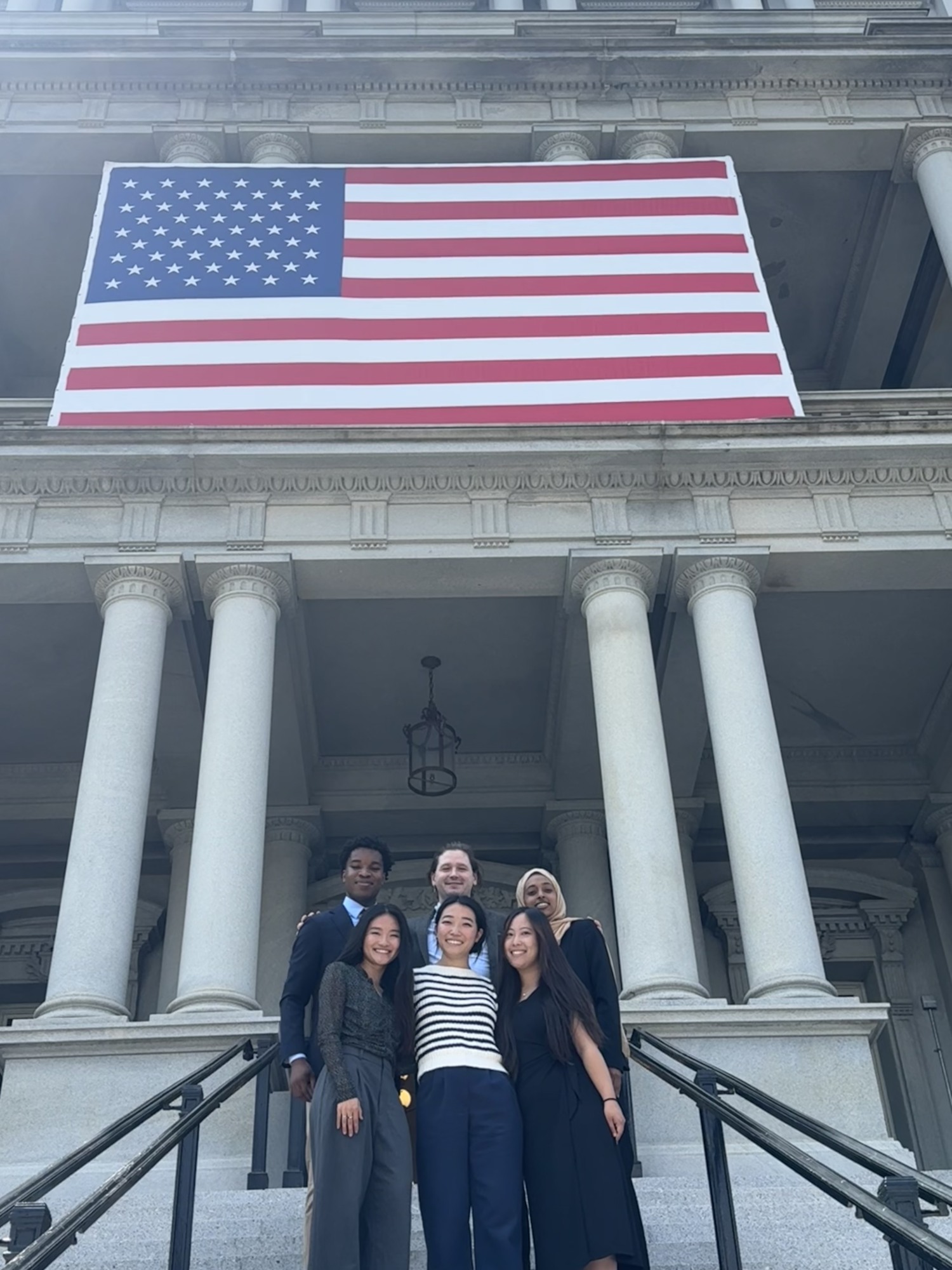When Brown senior Jenn Wang was a tech policy intern at the White House, she and her friend (now co-Founder) Kayla Huang came up with the idea for the Paragon Policy Fellowship: a nationwide program that would connect college students to local governments in order to develop science and tech policy.
“There’s a gap in opportunities for students to enter the science and tech policy field,” says Wang. “Students interested in the field don’t have accessible opportunities to pursue their interests in public service, and state and local governments lack an effective talent pipeline to expand their tech policy capacity.”
The Paragon Policy Fellowship aims to bridge that gap, providing opportunities for students to gain professional experience working with local governments and building infrastructure for those governments to continue expanding their policies as technologies like AI rapidly develop.
Established in early 2024, the Paragon Policy Fellowship has already placed 142 students from over 90 universities with local governments in 8 different states across the country. Fellows are placed in groups of six to eight and partnered with a government in their region to work on a semester-long project where they develop policy recommendations and present them to their local communities.
“Paragon is really focused on building the talent pipeline and making sure that students have an opportunity to explore policy before they enter the workforce,” says Wang, who studies Computer Science at Brown. During her time in college, she has become increasingly interested in policy aspects and has struggled with finding a path that incorporates both technology and policy.
“I’ve had to make painful decisions in order to find a foot in the field of tech policy,” says Wang. “Part of the motivation for this fellowship program is to develop a path and a community so that hopefully other people don’t have to make those sacrifices in order to pursue their passions. I hope they’ll be able to avoid some of the challenges I faced when navigating between fields.”
Paragon has worked with a range of government partners to develop Fellow projects. “One example I really like is a project with the local government of Lebanon, New Hampshire. They’re a really small city government and have a technology review committee that’s maybe three people,” says Wang. The city is creating an AI procurement framework to ensure compliance with their privacy, security, equity, and transparency standards. For their project, the student Fellow team outlined the key components that the city would need and tailored the framework to the city of Lebanon.
In another project with the State of Georgia Technology Authority, students contributed to the state’s generative AI standards. “This is the first statewide generative AI education standard that is going to be put into effect for 40,000 Georgia government employees. The team got to present their research to the state AI Committee. These governments are placing a lot of value on the student perspectives, and they’re able to make a real impact,” says Wang.

With the Paragon Policy Fellowship welcoming their third cohort this fall and thinking about the growth of the program, they are now planning to develop a “playbook” that will act as a guide for institutions who want to follow Paragon’s lead in building a pipeline for students to work with local governments on tech policy issues.
On October 10th, the Public Interest Technology University Network (PIT-UN) announced Paragon as a recipient of the 2024 PIT-UN Network Challenge, which will fund the creation of this playbook. Playbook development is being led by Wang and the Paragon team under the guidance of Brown CNTR Director Suresh Venkatasubramanian, David Guston of ASU, and Noha Hazzazi of Howard.
Each of the 2024 PIT-UN Network Challenge Grantee projects “focuses specifically on Educational Offerings and Career Pipeline/Placement efforts,” and “centers the needs of communities that have historically been excluded from technology design, workforce and policy, and will empower communities through partnerships with minority-serving institutions, local and state government and nonprofits,” according to the PIT-UN Network Challenge.
Paragon will receive a grant of $90,000 from PIT-UN to fund 150 new fellows and develop the playbook that will include “an organizing handbook for establishing local student-government partnerships, a policy toolkit to educate and support students, case studies of policy projects in different regions, and profiles of students from underrepresented backgrounds in tech policy,” per Paragon’s PIT-UN Network Challenge project proposal.
“We’re very excited about the PIT-UN Network Challenge grant and what it will mean for our program,” says Wang.
Wang and her team are applying to many grants like the PIT-UN Network Challenge, and they hope to eventually transition into a part-time staff model. “There are a lot of resources that exist out there, and we plan to build more connections so that we are not operating in isolation. That is one of the biggest goals of Paragon - to build connections for our program, students, and local governments.”
As the Paragon Policy Fellowship develops, Wang hopes to be able to raise the funding for the fellows in order to increase the equity of the fellowship, create established university partnerships, and expand to states across the country, especially those that are putting fewer resources towards technology.
Personally, Wang plans to pursue a PhD in computer science and continue to apply her technical expertise to policy issues. “When the AI Bill of Rights came out, I remember reading it and thinking that this is exactly what I want to work on. It was like there were fireworks going off in my head. Ever since then, I haven’t looked back. I want to combine tech and policy and hopefully make space for others to do the same.”
Learn more about the Paragon Policy Fellowship at https://www.paragonfellowship.org/ and about the 2024 PIT-UN Network Challenge recipients at https://pitcases.org/2024-network-challenge-grantee-reveal/.